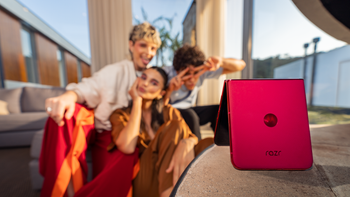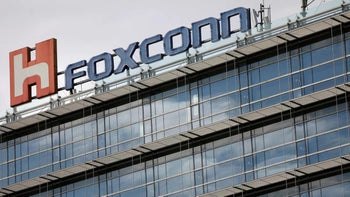Verizon takes a big step toward a greener future for your phone

A while back, Verizon set a target to match 50% of its annual electricity use with renewable energy by 2025. Now that 2025 is here, the carrier is still making moves to hit that goal.
A new report shows that Verizon and energy company Invenergy are expanding their partnership with new agreements to buy 640 megawatts of solar power across four states.
With these new deals, Verizon's total energy purchases from Invenergy have now topped 1 GW. Based in Chicago, Invenergy is the biggest privately-owned clean energy developer in the US, making this a big move for Verizon's push toward renewable energy.
The agreements cover solar energy from several projects, including Richfield Solar in Maryland and Maple Flats in Illinois, which both started operating last year. There are also two more projects in the pipeline: Cadence Solar in Ohio, slated to go live in 2026, and Chalk Bluff in Arkansas, expected to be online by 2027.
As part of these PPAs, Verizon will pay for the electricity it uses and earn clean energy credits. Invenergy notes that these solar projects are part of a $4 billion investment.
This clean energy shift marks a step forward in making the company's operations more sustainable, which might not impact your phone experience right away, but in the long run, it could help make network operations more energy-efficient and even keep costs in check, which is always a win in my book.
A new report shows that Verizon and energy company Invenergy are expanding their partnership with new agreements to buy 640 megawatts of solar power across four states.
With these new deals, Verizon's total energy purchases from Invenergy have now topped 1 GW. Based in Chicago, Invenergy is the biggest privately-owned clean energy developer in the US, making this a big move for Verizon's push toward renewable energy.
The projects deliver jobs and economic benefits to local communities and add more American energy to the grid.
– Chris Orzel, a senior vice president with Invenergy, February 2025
Chalk Bluff is not only powering Verizon but will also deliver energy to Meta (the parent company of Facebook, Instagram, Threads, and WhatsApp) as part of a deal made last year. Invenergy has also secured partnerships with Tesla and Honda.
As part of these PPAs, Verizon will pay for the electricity it uses and earn clean energy credits. Invenergy notes that these solar projects are part of a $4 billion investment.
This clean energy shift marks a step forward in making the company's operations more sustainable, which might not impact your phone experience right away, but in the long run, it could help make network operations more energy-efficient and even keep costs in check, which is always a win in my book.
Now, when compared to other carriers, Verizon is catching up. T-Mobile, for example, has already hit its goal of using renewable energy. Overall, I think it's clear that sustainability is becoming a bigger priority in the mobile industry and Verizon's efforts show the company is serious about staying competitive in this green race.










Things that are NOT allowed: